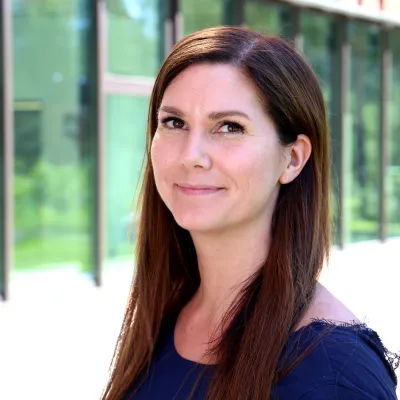Israel, with a population of 9.3 million and almost 100 unicorns, has earned the title of "the Startup Nation." As a deep-tech incubator, VTT LaunchPad was intrigued by the secret sauce behind Israel's startup success and embarked on a trip organized by the Israeli Embassy of Finland in February 2023 to learn more about their ways of working.
Israel, with a population of 9.3 million and almost 100 unicorns, has earned the title of "the Startup Nation." As a deep-tech incubator, VTT LaunchPad was intrigued by the secret sauce behind Israel's startup success and embarked on a trip organized by the Israeli Embassy of Finland in February 2023 to learn more about their ways of working.
During the four-day trip, we gained an extensive overview of how Israel's universities, research institutes, incubators, accelerators, and public funding organizations function within their startup ecosystem. We found both similarities and differences in their approach, which led us to believe that we are on the right track, but some tweaking could improve our results.
As a small nation with limited natural resources, Israel has fostered the growth of new businesses by investing in technology transfer from research institutes to startups for the past 30 years. Several key strengths contribute to Israel's success in creating startups, including the presence of around 500 multinational corporations with innovation centres, access to top talent from academia with a high ambition for creating tech startups, and an entrepreneurial culture supported by long-term state-level commitment to fostering new technology companies. This unique combination has attracted significant global funding, particularly from the US to Israel's startup ecosystem.
Notably, 10.4% of Israel's workforce is involved in the innovation ecosystem, making it a major contributor to the country's economy (source: Start-up Nation Central). The demand for rapid high-tech development and commercialization has been driven by the unstable political situation and the lack of natural resources in Israel. This has led to innovations in sectors such as agrifood, including water desalination and improved shelf life of produce like cherry tomatoes. The mandatory military service for both men and women in the Israeli defense forces has also been a cornerstone for technological education, providing extensive training in military and security tech, which has resulted in a booming cybersecurity industry with numerous cybersecurity startups. In recent years, defense technologies have also been applied to civilian applications, leading to innovations in areas such as artificial intelligence and information technology.
Furthermore, Israel's status as the only majority Jewish state in the world has largely benefited its startup ecosystem. In the 1950s, the Israeli government enacted a law that allowed all Jews to return to Israel, leading to tens of thousands of highly educated individuals immigrating annually, particularly in fields such as medicine, engineering, and education. This has provided Israel with exceptional access to talent, further strengthening its young and highly skilled workforce (source: The Times of Israel).
Chutzpah mentality of the Israeli people is one of the reasons to success
Israel's entrepreneurial success has been attributed to its unique culture that values traits such as lack of hierarchy, risk-taking, improvisation, and quick decision-making. One prominent characteristic of Israeli people is their "chutzpah" mentality, which means audacity that borders on rudeness, and is seen as a typical quality among them. This mentality has been credited with breaking boundaries and pushing for deals to be closed.
In comparison, Finland also has a relatively low hierarchy, but the Finnish people are known for being modest and polite. While these traits are admirable, they differ from the audacity and assertiveness associated with "chutzpah." However, Finland has its own success stories, technological breakthroughs, and successful startups that are worth being proud of. It's worth noting that "chutzpah" is not the only characteristic that Israeli venture capitalists (VCs) look for in startup entrepreneurs. In fact, they value qualities such as leadership, persistence, flexibility, genuineness, down-to-earth attitude, and coachability, while avoiding arrogance or over-promising. Interestingly, these qualities align with Finnish characteristics, suggesting that entrepreneurial mentality can indeed be learned and cultivated. Perhaps embedding some of the "chutzpah" mentality into Finnish communication style to showcase our achievements to the world.
How the tech transfer for spinning out works in Israel?
A typical Israeli tech transfer model for spinning out startups from academic institutions is licensing the IPR for about 20% of pre-money equity. The benefits of licensing compared to transferring ownership of IPR as an in-kind investment, which we typically do, arise from deals when IPR ends up for sub-licensing, or the original company goes to bankrupt and the IPR rights return to institution.
We can also see differences how exit income is used. The standard Israeli model earmarks 20% of the income for the research group, 40% for inventors and 40% for the research institution.
The importance of professors in science-based startup creation was mentioned in all places we visited. The commitment of the professors is strengthened by including them as founding partners, while they continued to work at the academic institute. This incentive made them key enablers and helped in recruiting entrepreneurial-minded people to research groups.
Money and the markets
What differs from Finnish ecosystem is the strong connections to international funding fortified by the close ties of the diaspora and zealous support for developing a strong State of Israel. Israeli research is backed by large amounts of private funding, in addition to which 90% of the investments in Israeli technologies come from foreign investors. Many of the academic institutions in Israel have also established their own VC funds, which increases the possibilities to get the seed funding for their spin-off startups.
In 2019, it was reported that 530 multinational companies from 53 countries were engaged in innovation in Israel alongside the 6000 local startups (source: Forbes). This co-innovation has created a massive technological cluster and opportunities for large-scale collaboration. Since the country and the local market is small, Israeli startups aim for growth in global markets, especially in the US. However, the local companies and multinationals in Israel are key partners for beta-testing and validating the customer proposition. Once the proof of concept has been established locally, it becomes easier to convince global partners.
Our team is back at home - with several good one-liners in our minds
“What the country will need in the future, that we need to invest in right now” - “We don’t have natural resources – our minds are the major resource” - “Entrepreneurship must be felt - And it can be taught” - “I would invest a lot in professors”.
What did we learn?
From our observations, we have learned that despite some differences, our spin-off creation model is effective and not dissimilar to the Israeli one. However, to see measurable impacts, it requires patience and decades of systematic effort to transfer technology from research institutes to startups with ambitious global goals. We also need to take more pride in our inventions and collaborations and confidently showcase success stories. Perhaps what the Finnish startup ecosystem needs to excel is a little more "chutzpah"!
Tiia-Maria Tenhunen







